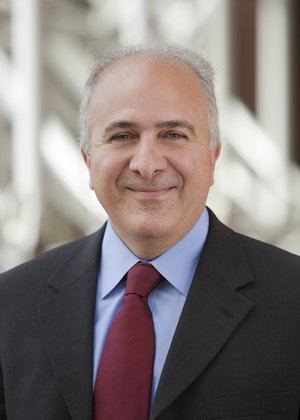BOSTON — Harry Glorikian is focusing on the impact of technology on medicine and hoping to encourage closer ties between the two, thus resulting in better health care at a lower price point.
Glorikian is making his argument for this increased use of technology in medical care in his latest book, MoneyBall Medicine: Thriving in the New Data-Driven Healthcare Market.
The hardcover edition of the book was published in November and its initial runs sold out promptly on Amazon. Now, an electronic edition has been released as well.
The book, co-written by science writer Malorye Allison Branca, has found plenty of attention in the medical world.

For Moneyball, Glorikian interviewed dozens of healthcare providers, top healthcare executives, and entrepreneurs from organizations including many at Lahey Clinic, Collaborative Trajectory Analysis Project (cTAP) and Flatiron Health.










